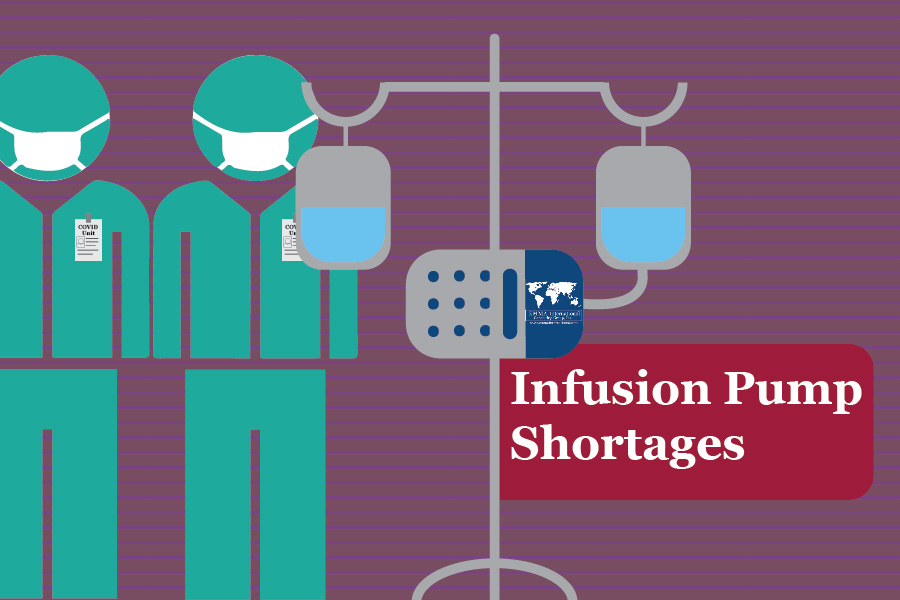The COVID-19 pandemic has caused mass shortages of ventilators and PPE globally, but now healthcare workers are starting to see the effects of the pandemic on supplies of infusion pumps. Hospitals are starting to see their supply of infusion pumps, which are critical in providing medications and fluids, start to dwindle. As the number of hospitalized COVID-19 patients increases, hospitals are seeing unprecedented demand for these pumps to support the continuous infusion of medications, nutrition, and/or fluids to patients.
The FDA recently issued a guidance on infusion pumps and accessories with the intent of expanding access to the devices during the pandemic. Like other enforcement policies issued by the agency during the COVID-19 public health emergency, the guidance on infusion pumps relaxes the regulatory requirements for the devices. Most notably, the guidance allows manufacturers with pumps already in the market to make low to moderate risk changes to the device without submitting a new 510(k).1 These changes could include but are not limited to, a modification in design, intended use, material, energy source, or manufacturing process.
In addition to expanding supply, the guidance also aims to promote remote monitoring technology of infusion pumps so healthcare workers and COVID-19 patients can maintain a safe distance. Changes covered under the guidance, that can be implemented without submitting a new 510(k), include modifications to implement Bluetooth capability, addition of accessories for remote adjustment of infusion parameters, and increased battery capacity.2 All of these changes will make it possible for healthcare providers to continuously monitor, and adjust, infusion pumps without entering rooms or coming into close contact with patients. Some hospitals that do not have the infusion pumps with remote technology have resorted to putting the pumps in hallways and using long tubing fed under doors or through makeshift holes in walls.3 The obvious risks to this tactic include delays and inaccurate delivery of drugs, which remote monitoring technology can mitigate.
If you need help understanding how your device can fit into the changing regulatory landscape of the COVID-19 pandemic, EMMA International is ready to assist. Contact us at info@emmainternational.com or call 248-987-4497 to see how we can help!
1FDA (April 2020) Enforcement Policy for Infusion Pumps and Accessories during the COVID-19 Public Health Emergency retrieved on 04/20/2020 from: https://www.fda.gov/media/136701/download
2Kelly, MedTechDive (April 2020) FDA Allows for Infusion Pump Modifications to Prevent Shortages retrieved on 04/20/2020 from: https://www.medtechdive.com/news/coronavirus-fda-infusion-pump-modifications-to-prevent-shortages/575511/
3Slabodkin (April 2020) The Latest Coronavirus Shortage: Hospital Infusion Pumps retrieved on 04/20/2020 from: https://www.medtechdive.com/news/the-latest-coronavirus-shortage-hospital-infusion-pumps/575891/






